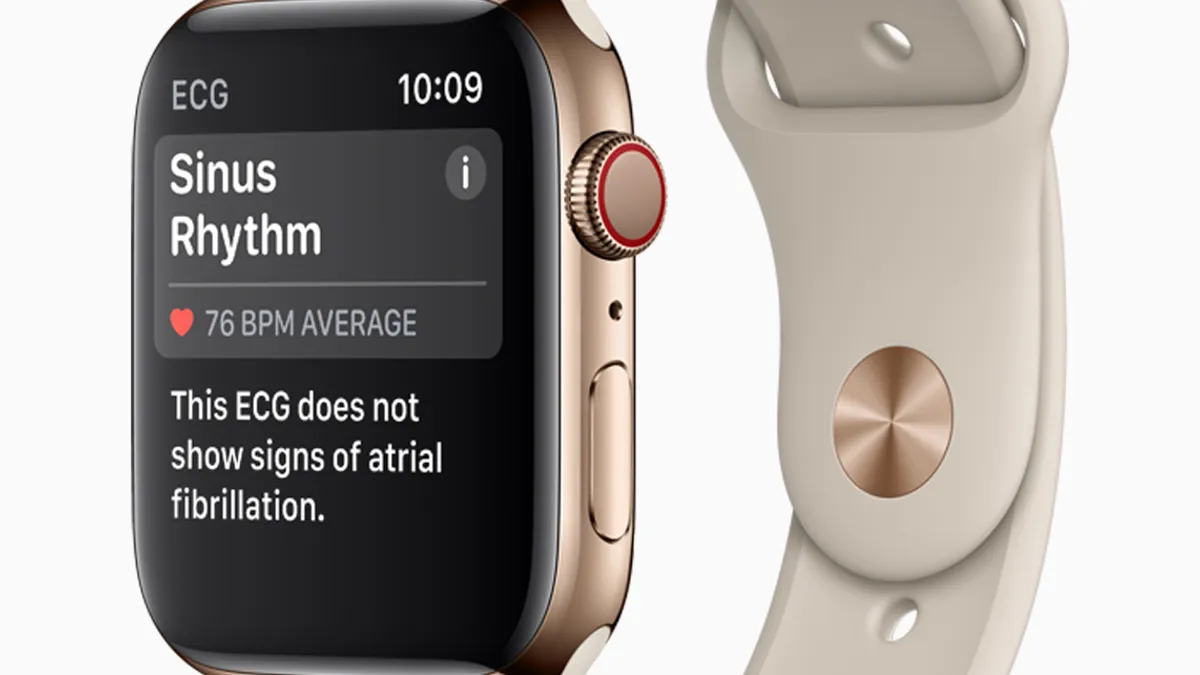Dive Brief:
- As Apple makes inroads into the healthcare and wellness market, establishing itself as the platform for consumers' personal health records will be central to the tech giant's app, services and wearables strategies, according to a new report from research firm CB Insights.
- Apple is aiming to take advantage of the lack of an existing third party developer ecosystem for healthcare data by building the first open platform for the market, modeled after the attractive third-party developer ecosystem it has created in its app store, according to the report.
- Current market players in Apple's line of fire include health IT and electronic medical record (EMR) companies and medical device makers that are building commodity consumer-facing devices, the report said.
Dive Insight:
Apple's strategy has the potential to become a new paradigm for healthcare by empowering patients to make decisions and give data access to whomever they choose, the research firm suggests.
The company bought personal health record startup Gliimpse in 2016. A step tracker and calendar give consumers a reason to engage regularly with the app, which also tracks wellness metrics such as physical activity, mindfulness, nutrition and sleep. In 2018, Apple said it would integrate EMR data into the iPhone's health record and would open the API to third parties through a software development tool called HealthKit.
Apple is part of a group pushing for a technology called Fast Healthcare Interoperability Resources (FHIR) to become the standard for increasing the exchange of data between hospitals, physicians and other relevant parties, the report notes.
More than 120 healthcare organizations are part of Apple's health record beta, including Adventist Health System, Mount Sinai, Cleveland Clinic, Intermountain Healthcare and LabCorp, CB Insights said.
An edge for Apple is its own strong brand. "Various existing healthcare players have notoriously terrible brand and customer experience, which has been Apple's focus as a company. As healthcare moves to a more proactive model, which requires reaching out to patients, having a strong brand is a major component," the report states.
Apple could also reshape the medical research industry, CB Insights said. In 2015, the company launched ResearchKit to let medical researchers conduct studies using the iPhone. The kit simplifies the process of signing up for a study and can identify eligible candidates through their health records. It also enables remote monitoring of patients. Based on the success of ResearchKit, Apple in 2016 launched CareKit, which allows physicians and hospitals to monitor patients.
The company took a major step forward in the medical device arena when it received FDA clearance in September for an Apple Watch Series 4 application to provide a single lead electrocardiogram for heart monitoring. Apple has struck key partnerships to develop other health capabilities as well, addressing areas such as mindfulness and physical activity, therapy for stroke patients, psychiatric care support, ADHD, migraine prevention and binge eating, CB Insights said.













